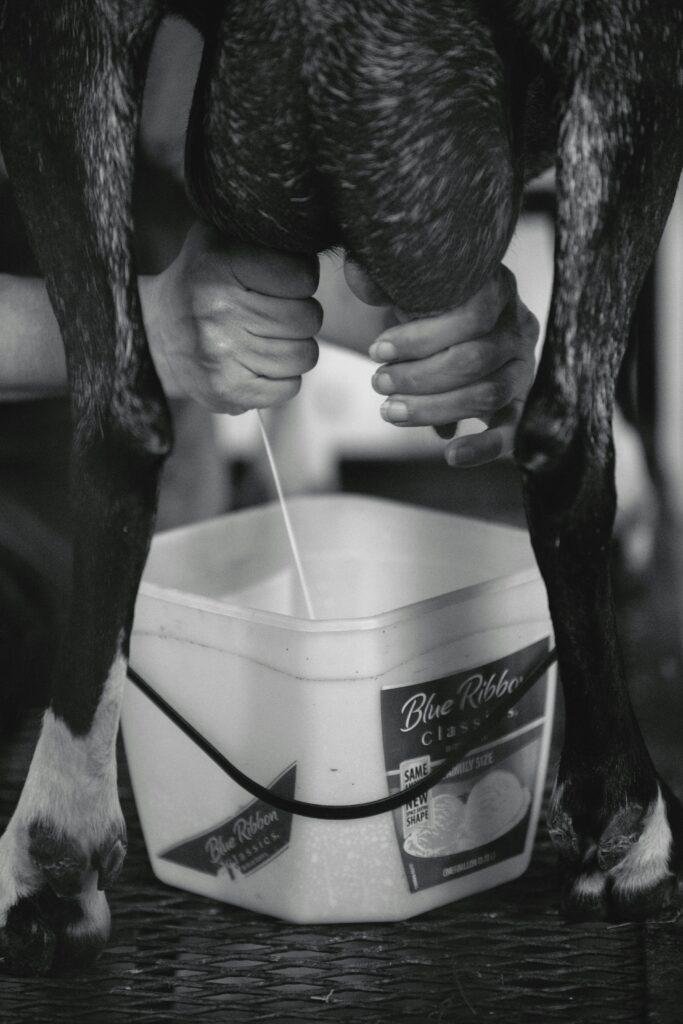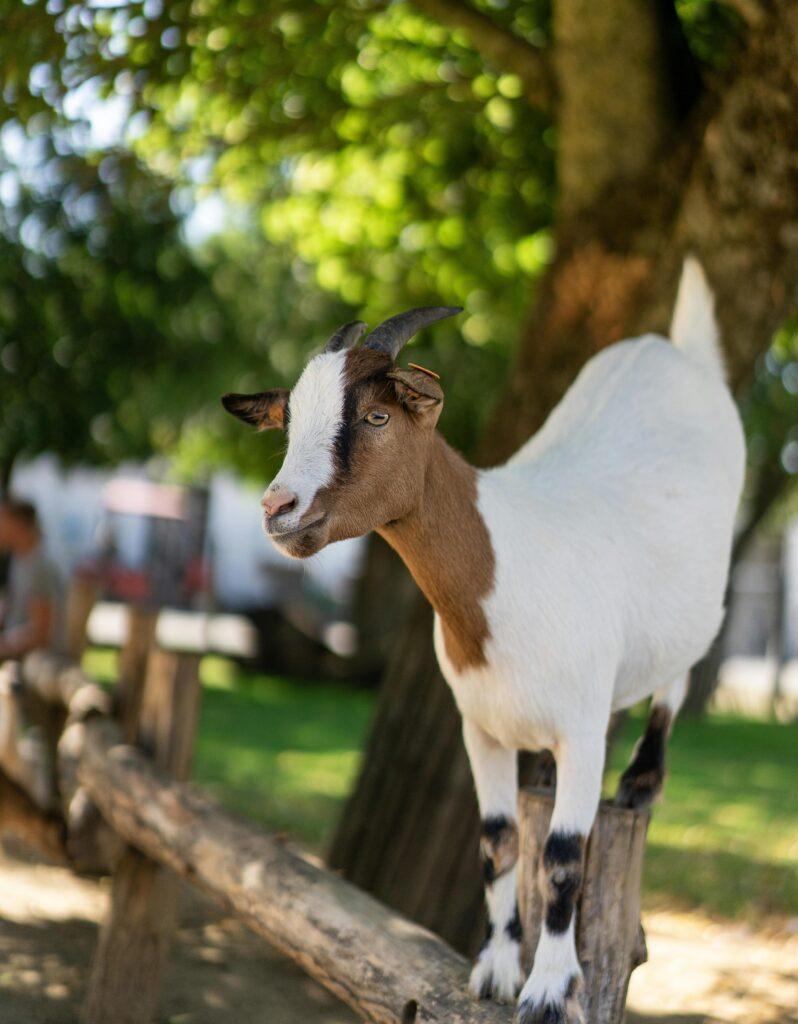So, you’re dreaming of fresh goat milk, creamy cheeses, and a more sustainable lifestyle? Raising dairy goats naturally can be incredibly rewarding, but it’s more than just throwing some hay over the fence. It’s about understanding their needs, working with nature, and creating a healthy, thriving herd. This guide will walk you through the essentials of natural goat care, from everyday nutrition to herbal remedies, empowering you to raise happy and healthy goats on your homestead.
Embracing the Natural Approach to Goat Care
Welcome to the wonderful world of natural goat husbandry! More and more homesteaders are seeking a more holistic approach to raising their animals, and for good reason. Natural methods can often be gentler on the goats, reduce reliance on chemical interventions, and align perfectly with a sustainable lifestyle. This isn’t about neglecting modern veterinary care – it’s about integrating the best of both worlds. We’ll explore everything from building a strong foundation with proper nutrition to using time-tested herbal remedies for common ailments. Get ready to dive in and discover the joy of raising dairy goats the natural way!
Nurturing Your Goats Naturally
Most new goat owners have educated themselves enough to know that they should regularly check famacha scores for parasite load and anemia. Often times a goat’s condition and coat will indicate when there is a problem. Definitely watch for scours or weight loss. Unfortunately, many of the signs won’t become evident until you have a real problem on your hands. While you may choose to treat them organically, understand that there are times when that is not the best way.
When you must consider medical treatment and intervention, don’t hesitate. Goats tend to go downhill very quickly. Yes, it’s true that overuse of antibiotics and de-wormers are not good, but you never want your goats to suffer. Conventional medicine is very helpful when it’s life or death. If you got your goat-herd from someone who raised them conventionally, they may be dependent on those practices and you will need to continue.
Building Resilience
As you are working to build a more sustainable herd, there are intermediate steps along the way. During that transition you are going for progress, not perfection. For example, feed your goats non-GMO feed, but organic is not necessary. Grow mostly on grass as the seasons allow, choosing unsprayed hay to help grow organic meat. You can and should breed for resilience.
IF your goats are eating where they poop and pee, that will not end well. To diagnose the situation, look for pale eyelids, then go ahead and de-worm them if indicated, using Ivermectin when necessary, but keep a watch. Don’t automatically give to kids at birth.
There are several de-worming options on the market because parasites are regional. Know and ask in your area. Don’t give Quest Plus to bred does; Ivermectin is okay for them. Goat birth defects are not something you want. Research before dosing. Confirm with a few sources, not just me here on the internet.
Give 1cc per 100lbs orally. Many parasites are resistant to Ivermectin as a de-wormer. Keep pen clean, change wet bedding, don’t allow them to lay where they poop and pee. These things will keep the time between de-wormings a little farther apart.
We live in a very mild-wintered, humid climate, not a dry desert. Parasitic worms thrive in these conditions. Print out a famacha card and know what you are looking for in regards to color on the scale because… goats go down quickly.
A final word on administering treatment
When dosing, it is a good idea to administer it when they already are wanting to eat and are chewing/swallowing. Place the syringe far back in their mouth so that they will be more likely to keep it down and less likely to return it to you with their cud. Goats are somewhat picky about what they eat regardless of what you may have heard. I have had success giving a copper bolus that I have stuffed inside a half banana. They never saw it coming.
For a more sustainable, natural anti-parasitic support, offer pumpkin seeds, garlic, oregano, pelleted lespedeza (there are a variety of species) or vietnamese bush clover (a variety of lespedeza) as you are developing your more sustainable herd.
As you build a more resilient herd, you will find that herbal de-wormers work well for small goats and small herds. With many of the full size goats and herds it get very spendy. You may want to try buying herbs in bulk and then mixing the blend yourself as a more affordable and sustainable option.
If your goal is resilience, you will have to consider the sustainability of each option and make the best decision you can for your herd and homestead.
Nutrition: The Foundation of a Healthy Herd
Just like us, goats need a balanced diet to thrive. High-quality hay, fresh pasture, and a small amount of grain are the cornerstones of a good goat diet. But natural goat keeping goes beyond the basics. Think about offering a variety of browse – leaves, branches, and shrubs – which provide essential nutrients and mimic their natural foraging behavior. Access to clean, fresh water is also crucial. Don’t forget mineral supplements! Goats need access to loose minerals, specifically formulated for goats, to ensure they’re getting all the necessary vitamins and minerals. A healthy diet is the best defense against disease and sets the stage for optimal milk production.
Herbal Remedies: Nature’s Pharmacy for Your Goats
One of the most exciting aspects of natural goat care is exploring the power of herbs. These natural remedies can be incredibly effective for treating a wide range of goat ailments. Let’s take a look at some essential herbs for your goat herd:
Slippery Elm: This incredible herb is a must-have for any goat keeper. Slippery elm coats and soothes the digestive tract, making it a fantastic remedy for both diarrhea and constipation. It’s gentle yet effective. Most goats will readily eat it, but you can mix it with a little water and syringe it into their mouth if needed. Remember, it thickens quickly, so mix just before use. A general dose is 2 teaspoons for adults and 1 teaspoon for kids.
Garlic: Garlic is a natural powerhouse! It acts as a natural wormer and offers a multitude of health benefits. Fresh garlic is best, but garlic powder will also work. Goats are smart – they’ll often eat it when they need it. Try adding a clove to their grain once a day. Garlic can also help clear up blood in the milk, boost the immune system, and has antibacterial and antifungal properties. It’s truly a versatile herb.
Raspberry Leaf: Known as the “mothering herb,” raspberry leaves are especially beneficial for female goats. They support reproductive health, cleanse the system, and can help ensure a smooth pregnancy and delivery. Offer raspberry leaves before, during, and after pregnancy, increasing the amount during the second half of gestation. A strong tea made from raspberry leaves can also be helpful for retained afterbirth. Most goats love them!
Marshmallow Root: If you’re looking to boost milk production, marshmallow root can be a helpful addition. Adding a tablespoon to their grain at milking time can sometimes increase milk yield.
Olive Leaf: With its antiviral and antibacterial properties, olive leaf is a valuable herb to have on hand for immune support.
Wood Sage: This herb can be useful in treating mastitis. Offer two handfuls of fresh wood sage daily alongside gentle udder massage.
- Comfrey: Also known as “knit bone,” comfrey is excellent for healing injuries. Fresh leaves or comfrey root can be used.
An Ounce of Prevention: Growing an Herb Garden
One of the best ways to ensure your goats have access to these wonderful herbs is to grow your own! An herb garden is a fantastic addition to any homestead. Not only will your goats benefit, but you’ll also have a ready supply of fresh herbs for your own use. Consider planting herbs like thyme, comfrey, marjoram, sage, germander, and even lavender. Goats are surprisingly discerning and will often self-select the herbs they need.
Herbal Worming: A Natural Approach to Parasite Control
While a good diet and overall health can help build resistance to parasites, sometimes a little extra help is needed. Here’s a recipe for a natural herbal wormer for goats:
(Remember to consult with your veterinarian before using any herbal remedies, especially for parasite control. Fecal egg counts are essential to monitor effectiveness.)
Ingredients:
- Wormwood (Artemisia absinthium): 2 tablespoons (dried, ground) (Use with caution and avoid in pregnant or lactating goats.)
- Black Walnut Hull Powder: 2 tablespoons
- Garlic Powder: 1 tablespoon
- Diatomaceous Earth (Food Grade): 2 tablespoons
- Clove Powder: 1 teaspoon
- Fennel Seed (ground): 1 tablespoon
- Thyme (ground): 1 tablespoon
Instructions: Mix all ingredients thoroughly.
Dosage: 1 tablespoon per 100 pounds of body weight for adults, ½ tablespoon per 50 pounds for kids.
Frequency: Administer for 2-3 days, followed by a break. Repeat as needed based on fecal egg counts.
Method: Mix with molasses or honey, or sprinkle on grain.
Important Note: Wormwood should be used with caution and avoided in pregnant or lactating goats. Always monitor fecal egg counts to ensure the herbal wormer is effective. Have conventional wormers on hand for heavy infestations.
Addressing Stubborn Goats: Introducing Herbs Early
Some goats can be picky eaters! The best way to get your goats to accept herbs is to introduce them early in life. Just like children, goats are more likely to enjoy new flavors if they’ve been exposed to them from a young age. Offer small amounts of various herbs regularly, and they’ll be much more likely to incorporate them into their diet as adults.
Conclusion: The Rewards of Natural Goat Keeping
Raising dairy goats naturally is a journey, not a destination. It requires patience, observation, and a willingness to learn. But the rewards are immense. From the satisfaction of providing your goats with the best possible care to the joy of fresh, wholesome milk, natural goat keeping enriches both your life and the lives of your animals. By embracing natural methods, you’re not just raising goats – you’re creating a sustainable and harmonious homestead. So, go ahead, embrace the natural path, and enjoy the incredible journey of raising healthy, happy goats!


I’ve been on the fence about getting goats for the last couple years and reading this informed me of a few things I didn’t know to lookout for. Thanks!